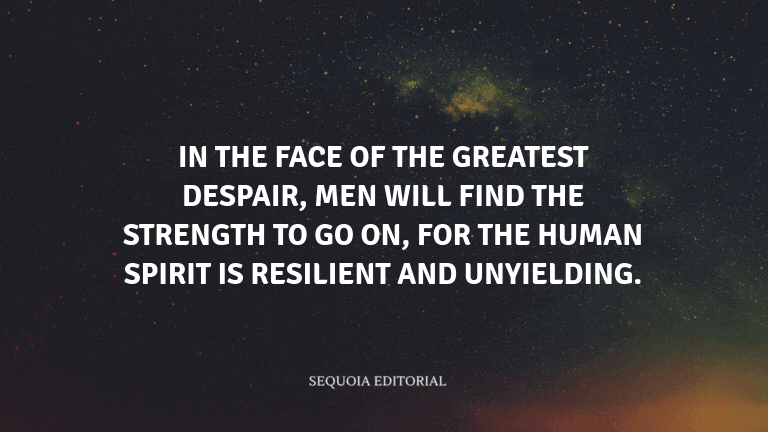In Harm's Way is about the sinking of the USS Indianapolis during World War II and the harrowing survival story of the ship's crew. The book delves into the bravery, leadership, and the struggle for survival in the open sea against all odds. It portrays the strength of the human spirit amidst the most dire circumstances.
Table of Content
In Harm's Way Book Summary
On July 30, 1945, the USS Indianapolis, a heavy cruiser, is struck by two Japanese torpedoes and sinks within minutes, casting 900 men into the shark-infested waters of the Pacific Ocean.
Captain Charles Butler McVay III, along with hundreds of survivors, faces the immediate struggle for life as sharks encircle them. Chief Petty Officer Delbert Eugene "Dale" Mitchell takes charge, organizing the men and keeping their spirits up.
After a torturous ordeal in the water, where some men succumb to sharks and dehydration, a rescue plane spots the survivors. However, the men are not out of danger yet. They must endure days in the open sea, battling exposure and exhaustion.
Back on land, the Navy is unaware the USS Indianapolis has sunk, and the delay in rescue becomes a question of horrifying bureaucracy. As the men struggle, some lose their grip on reality, yet the collective will to survive remains strong.
The survivors' numbers dwindle, and those left fight to keep each other alive. Harlan Twible, despite his own injuries, continues to care for his fellow sailors, and Dr. Lewis Haynes works tirelessly to treat the injured.
When rescue finally arrives, only 317 of the original crew are left. The survivors are brought to safety, but the psychological scars of the ordeal run deep. The nation celebrates their return, but there is a darker chapter to follow.
Captain McVay faces a court-martial, accused of failing to steer a zigzag course that might have avoided the torpedoes. The trial is a national controversy, with many believing McVay is being scapegoated for the Navy's mistakes.
The survivors of the USS Indianapolis rally in support of Captain McVay, defending his actions. The trial highlights the heroism and sacrifice of the men who endured the ship's sinking and its harrowing aftermath.
In a tragic turn, McVay is found guilty and is the only U.S. Navy captain to be court-martialed for losing his ship in wartime. He is later exonerated posthumously, but the injustice weighs heavily on him.
For those who lived through the "worst sea disaster in U.S. naval history," the memories of the USS Indianapolis persist. They form a bond that transcends the years, and their story serves as a testament to human endurance and the high price of war.
The legacy of the USS Indianapolis and her crew endures as a reminder of the sacrifices made in the name of freedom, and the necessity to honor those who have fallen in the line of duty.
In Harm's Way Quotes
- In the face of the greatest despair, men will find the strength to go on, for the human spirit is resilient and unyielding.

- For in the end, he was a survivor, and by definition a survivor is a fighter. Someone who has the determination to live, a will to overcome adversity.

- Courage is not the absence of fear, but the triumph over it. The brave man is not the one who does not feel afraid, but he who conquers that fear.

In Harm's Way Ending Explained
At the end of In Harm's Way, the survivors of the USS Indianapolis are finally rescued after a grueling ordeal at sea. However, their suffering does not end there.
Captain Charles Butler McVay III, who led the ship when it sank, is unjustly court-martialed by the Navy. Despite the efforts of the survivors who testify on his behalf, he is found guilty of hazarding his ship by failing to steer a zigzag course.
The crew's continued fight for justice for their captain is a reflection of their unbreakable spirit. The book concludes with the knowledge that while the physical survival is over, the struggle for recognition and fairness will persist as a mark of honor for those who were lost and those who survived.
Characters in book In Harm's Way
- Captain Charles Butler McVay III: The commander of the USS Indianapolis, a dedicated and capable officer who faces intense scrutiny following the ship's sinking.
- Chief Petty Officer Delbert Eugene "Dale" Mitchell: A resilient and resourceful crew member whose leadership skills become essential during the survivors' ordeal at sea.
- Harlan Twible: A crew member of the USS Indianapolis who heroically cares for his injured shipmates while awaiting rescue.
- Robert "Robby" Ramsdell: A young crew member who, despite his own injuries, provides comfort and support to his fellow survivors.
- Dr. Lewis Haynes: The ship's doctor whose medical expertise and calm demeanor are critical to the survival of the men in the water.
- King Neptune: The mythical figure who, in a darkly humorous ritual, initiates the ship's crew into the ancient order of the deep.
Key Lessons
- Leadership is Crucial: In times of crisis, strong and capable leadership is essential for survival, uniting people, and making critical decisions.
- Never Lose Hope: No matter how dire the circumstances, maintaining hope and a will to survive is a powerful force that can carry you through the darkest of times.
- Justice is Worth Fighting for: Standing up for what is right, even in the face of overwhelming adversity, is a noble pursuit that can lead to positive change.
- Unity is Strength: Working together and supporting one another can drastically improve your chances of overcoming seemingly insurmountable obstacles.
- Prepare for the Unexpected: The ability to adapt and be prepared for unforeseen events is a critical skill that can make the difference between life and death.
- Reflect on History: Understanding and learning from past events is crucial to avoiding similar mistakes in the future and to honor those who have come before us.
My Personal Opinion
Is In Harm's Way worth reading? Totally! I found it to be a deeply moving account of human resilience in the face of unimaginable hardship. The story is both tragic and inspirational, and it shed light on a little-known chapter of World War II.
I was captivated by the vivid descriptions of the USS Indianapolis's sinking and the horrors its crew endured. However, I also felt frustration and anger at the injustice suffered by Captain McVay during the subsequent court-martial. The blend of heroism and bureaucratic failure made for a compelling and thought-provoking read.
I would recommend this book to anyone with an interest in history, military narratives, or stories of human survival. It is a tribute to the brave men who served on the USS Indianapolis and a powerful reminder of the impact of war on both a personal and national level.

